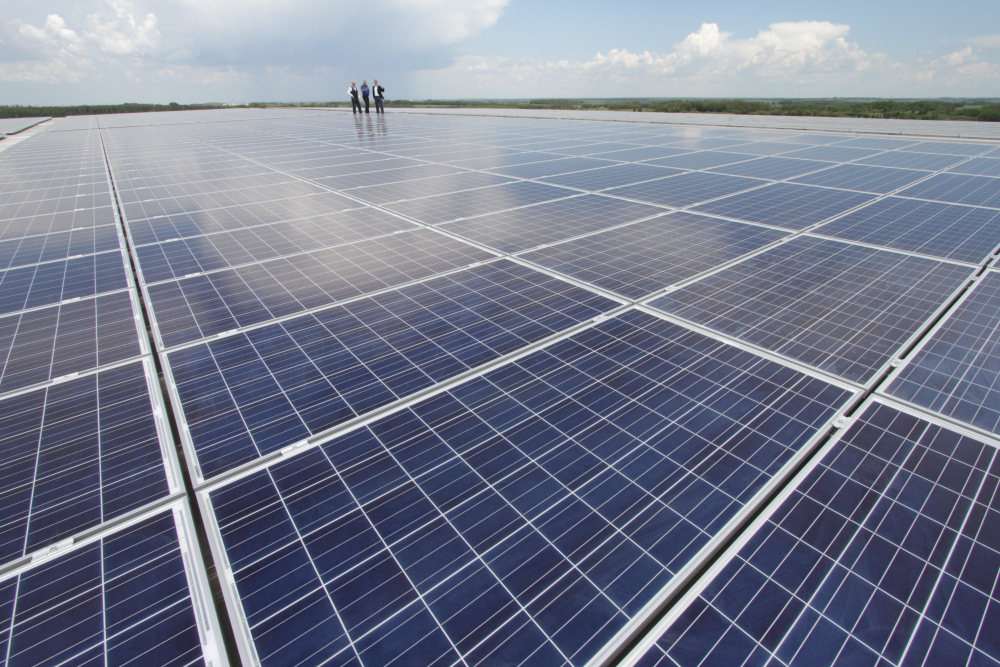With the prime minister and premiers meeting in two weeks to announce a cross-Canada plan for clean growth and climate change, many Albertans are understandably wondering, what have we got to gain from it all?
Our day-to-day struggles seem much more pressing. Our economy is sluggish, friends and family are out of work, and investment in our core energy industry is reeling.
While it’s true that the idea of clean growth faces some unique challenges in Alberta, we believe it also presents a critical opportunity for our province. It’s a chance to find a way of working together to not only decarbonize, but also to reinvigorate our economy with innovation, clean technology and new opportunities for sustained jobs.
This shared vision is why we’ve joined more than 60 business and civil society leaders across the country in signing a letter of support for the transition to a low-carbon economy, built on a foundation of co-ordinated nationwide carbon pricing. We believe Alberta’s future depends on embracing this shift and making it our own.
We know Albertans aren’t afraid of big ideas. In fact, we’re known for them. We have a culture of entrepreneurialism, innovation and rolling up our sleeves that has already produced results. Alberta was home to Canada’s first commercial wind farm back in 1993. We’re home to the world’s first system that converts municipal waste into biofuels and biochemicals.
And now more recently, Alberta is the site of the world’s first oilsands-based carbon capture and storage (CCS) project. The Quest CCS project at Shell’s Scotford upgrader near Edmonton has already put more than one million tonnes of carbon dioxide emissions in the ground, positioning Alberta as a global supplier for a technology that analysts say will need to account for one-sixth of all emissions reductions by 2050.
Meanwhile, the newly created Energy Efficiency Alberta agency will drive clean innovation in buildings by pumping as much as $645 million into programs that improve energy use in homes and businesses.
The list goes on of the clean technologies, products and expertise being advanced in Alberta that the world needs more of.
Now is the crucial moment to build on these successes and redouble our efforts. With co-ordinated action, we can meet our climate commitments while increasing exports in new clean technologies. We can also reduce the production costs and carbon footprint of our resource and manufacturing sectors, tapping into the global need for cleaner products.
A cross-Canada plan for clean growth and climate change is vital to accelerating this transition. Smart government leadership at every level can support the sustainability efforts of all Canadians while catalyzing initiatives in the private sector, enabling all of us to thrive economically while making real progress toward our environmental goals.
Getting this balance just right is especially critical for Alberta. Climate policy at all levels must ensure that benefits from this new economy accrue to all Albertans, while helping workers in established sectors adjust and protecting vulnerable communities.
It also needs to enhance the competitiveness of businesses in the province at home and abroad and give a boost to the province’s entrepreneurs, whose thirst for risk and skill at finding new markets will be critical to delivering innovative technologies to the global economy. The plan can do this by sending clear long-term signals that provide the predictability investors need, and by involving the business community in the creation and execution of the plan every step of the way.
This global transition is already underway. The world’s most advanced economic players are hard at work forging cleaner, more innovative economies. This changing global marketplace has huge potential to spur growth in all parts of Canada’s economy – including Alberta’s.
By embracing this transition now, Albertans can ensure that the plan includes plenty of opportunities and jobs for our people and that the province continues to thrive as a major global player in the energy sector.
Michael Crothers is president and country chair of Shell Canada, Arlene Dickinson is CEO of Venture Communications, and Ed Whittingham is executive director of the Pembina Institute.
This article originally appeared in the Calgary Herald.






